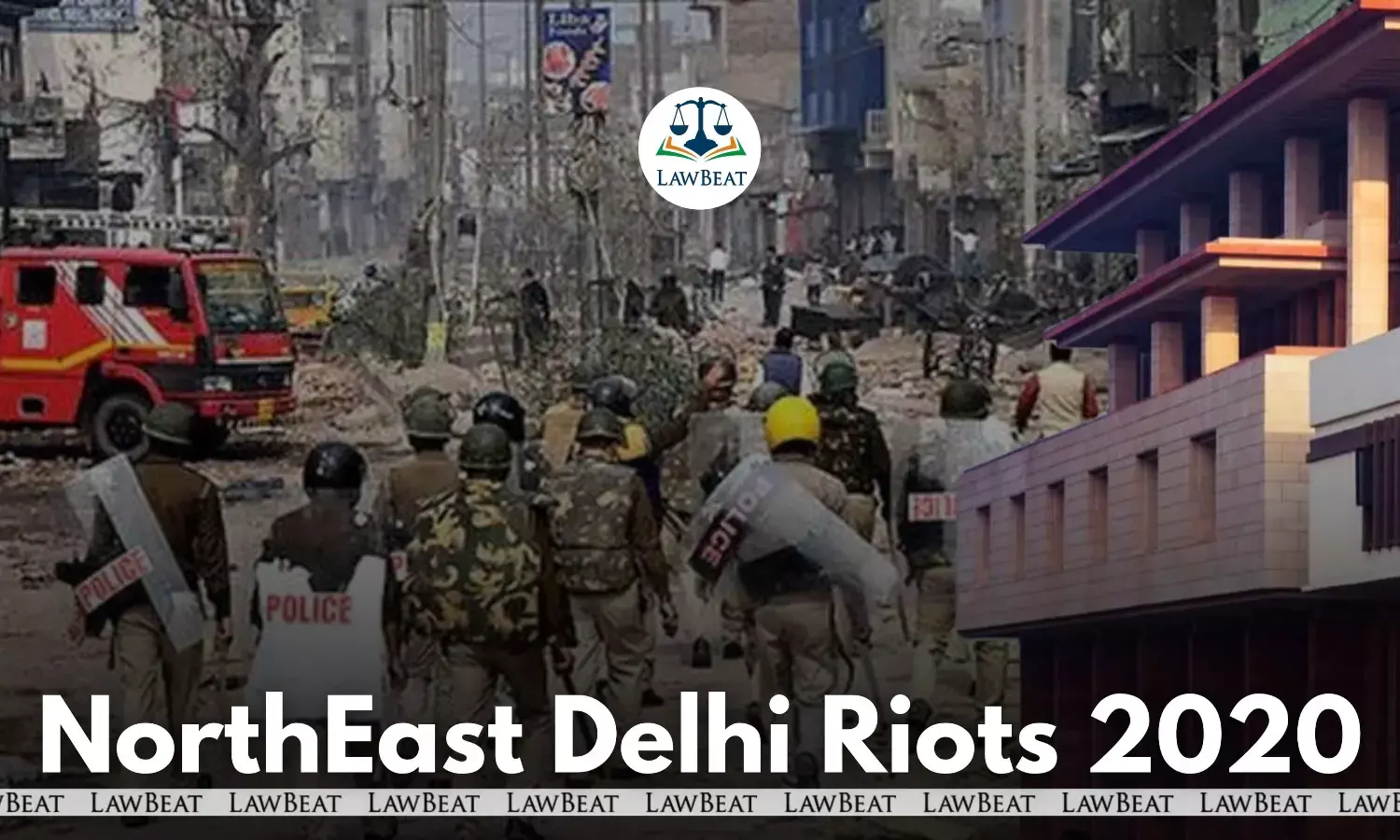Delhi Riots Case: Defence Questions Procedural Fairness and Evidentiary Gaps in Athar Khan’s Trial

On Wednesday, before the Delhi High Court, Athar Khan alleged that the investigating agency’s approach was selective and arbitrary.
Appearing before a bench comprising Justice Navin Chawla and Justice Shalinder Kaur, Khan contended that the investigation lacked consistency and fairness.
He asserted that individuals who had all attended the same meetings and protests were treated differently without any valid justification.
The counsel for Khan raised serious concerns about the credibility of witness statements and pointed to procedural lapses in the investigation.
Athar Khan’s advocate submitted, “The IO is picking and choosing the attributes he can level against any accused. Why was no action taken against the witness who himself participated in all meetings, much like me?”
During the hearing, the defence counsel presented detailed submissions challenging both the allegations and the manner in which the investigation was conducted. While acknowledging that Khan was linked to three controversial WhatsApp groups, the defence argued that there was no material evidence to prove he delivered any provocative speech;
“There is no video, post, or verbal communication linking him to incitement or violence,” the counsel emphasized.
It was further pointed out that Khan did not appear in any video footage related to the riots.
A significant issue raised related to the murder charges under Section 302 IPC; The defence argued that the case failed to specify which particular deaths were attributed to Khan.
“Over 50 FIRs were registered in connection with the deaths during the riots, yet this case does not establish any direct liability on the part of the accused,” the counsel asserted.
The reliability of a protected witness identified as “Jupiter” was also questioned. The advocate highlighted inconsistencies in Jupiter’s statements, noting that he initially claimed a meeting took place on January 20, 2020, with Khan’s presence, but later changed the date to January 26, 2020. The defence challenged the credibility of a witness who could not maintain consistency on such basic facts, stating, “If witnesses cannot even provide clarity on dates, then can this be considered?”
The counsel moreover criticised the investigation officer for allegedly being selective in framing allegations;
He questioned why witnesses who participated in the same meetings as the accused were pardoned while others were prosecuted.
While the defence conceded that Khan had organised a protest site, it argued that organising a protest is not illegal, though any ensuing violence is unlawful. “There is enough evidence to say that I organised a protest site. However, organising a protest is not an offence, but the violence that occurred was illegal,” the advocate further submitted.
Another point of contention was the quality and credibility of witness statements. The defence pointed out that many statements used vague terms like “those people” without identifying individuals clearly. The counsel questioned whether such vague and inconsistent testimony was sufficient to justify prolonged incarceration.
Further, the prosecution was criticized for relying heavily on statements that grouped all accused together rather than attributing specific roles or actions to individuals - It was also noted that one witness claimed to have been at the riot site only because he heard noises outside his home and went to investigate.
The defence highlighted procedural flaws, noting that no Test Identification Parade (TIP) had been conducted even though witnesses named certain accused. The counsel argued that statements recorded under Section 161 of the Criminal Procedure Code (CrPC) should not be treated as substantive evidence. “At this juncture, how do I contradict just witness statements? Basic oral statements cannot be used under section 161,” said the advocate for Athar Khan.
Towards the conclusion of the hearing, the defence questioned why the principle of parity was applied in this case and referred to judicial observations expressing concern over the use of statements recorded under Section 164 CrPC without proper scrutiny of their voluntariness.
The matter remains pending for further consideration by the bench.
Updates in Other Matters:
In the previous hearing, the advocate appearing for Imam argued that the prosecution relies on chats of two WhatsApp groups, but failed to provide any message that shows the intention of Imam to incite violence or communal hate. “The prosecution claims that the chats led them to believe there was a conspiracy among all co-conspirators but strangely, there have been no chats with the said co-conspirators”, the advocate for Imam stated.
In another hearing, Sharjeel Imam argued that his inclusion in the investigation stemmed from his representative position in various associations, and the authorities sought to make an example out of him. Senior Advocate Salman Khurshid, appearing for Sharjeel Imam, pointed out that although Imam served as president of several associations, no other member from those associations were implicated. He maintained that Imam supported the protests in his representative capacity, without engaging in any unlawful activity.
Case Title: Athar Khan v State (CRL.A- 677/2022)
